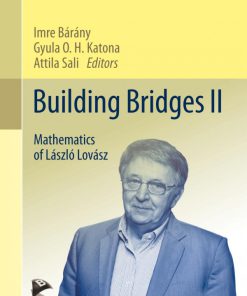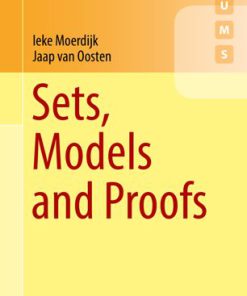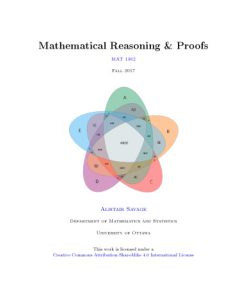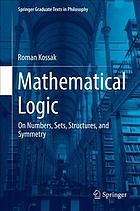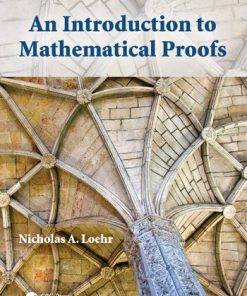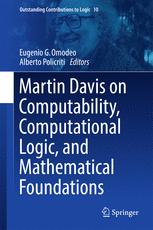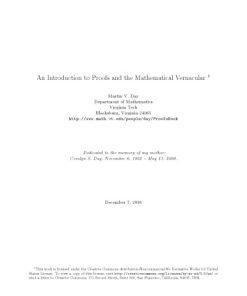Proofs and Refutations The Logic of Mathematical Discovery 1st Edition by Imre Lakatos, John Worrall, Elie Zahar ISBN 9781316286425 1316286428
$50.00 Original price was: $50.00.$25.00Current price is: $25.00.
Proofs and Refutations The Logic of Mathematical Discovery 1st Edition by Imre Lakatos, John Worrall, Elie Zahar – Ebook PDF Instant Download/Delivery: 9781316286425, 1316286428
Full download Proofs and Refutations The Logic of Mathematical Discovery 1st Edition after payment
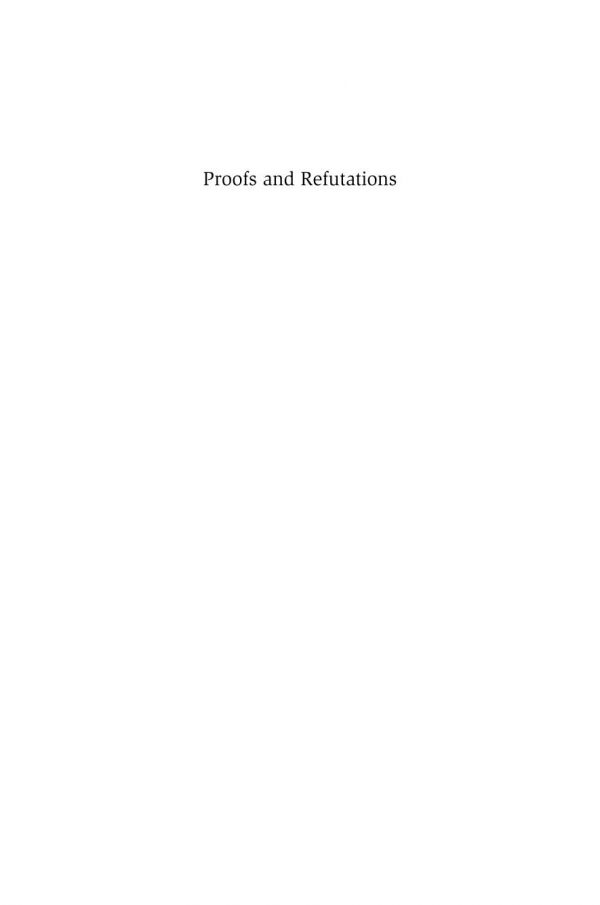
Product details:
ISBN 10: 1316286428
ISBN 13: 9781316286425
Author: Imre Lakatos, John Worrall, Elie Zahar
Proofs and Refutations is one of the undeniable classics of the philosophy of mathematics. Fifty years have passed since the publication of the articles that make up its central core, but the book has lost neither its freshness nor its provocative vitality. It takes the form of a classroom dialogue in which a group of students and their teacher investigate the problem of whether there is a relation that holds between the number of vertices V, the number of edges E, and the number of faces F of regular polyhedra (e.g. the five Platonic solids). At the outset of the dialogues they have arrived at the formula V – E + F = 2. They conjecture that the result might extend to any polyhedron (Euler’s conjecture), and this is the starting point of a riveting development that carries the reader through the rational reconstruction, as embodied in the class dialogue, of the history of Euler’s conjecture, culminating in Poincaré’s proof. The reconstruction, in strong contrast to a piece of axiomatic mathematics, features contradictions, monsters, counterexamples, conjectures, concept-stretchings, hidden lemmas, proofs, and a wide range of informal moves meant to account for the rationality of the process leading to concept-formation and conjectures/proofs in mathematical practice.
Table of contents:
Chapter 1
-
A problem and a conjecture
-
A proof
-
Criticism of the proof by counterexamples which are local but not global
-
Criticism of the conjecture by global counterexamples
a. Rejection of the conjecture. The method of surrender
b. Rejection of the counterexample. The method of monster-barring
c. Improving the conjecture by exception-barring methods. Piecemeal exclusions. Strategic withdrawal or playing for safety
d. The method of monster-adjustment
e. Improving the conjecture by the method of lemma-incorporation. Proof-generated theorem versus naive conjecture -
Criticism of the proof-analysis by counterexamples which are global but not local. The problem of rigour
a. Monster-barring in defence of the theorem
b. Hidden lemmas
c. The method of proof and refutations
d. Proof versus proof-analysis. The relativisation of the concepts of theorem and rigour in proof-analysis -
Return to criticism of the proof by counterexamples which are local but not global. The problem of content
a. Increasing content by deeper proofs
b. Drive towards final proofs and corresponding sufficient and necessary conditions
c. Different proofs yield different theorems -
The problem of content revisited
a. The naiveté of the naive conjecture
b. Induction as the basis of the method of proofs and refutations
c. Deductive guessing versus naive guessing
d. Increasing content by deductive guessing
e. Logical versus heuristic counterexamples -
Concept-formation
a. Refutation by concept-stretching. A reappraisal of monster-barring – and of the concepts of error and refutation
b. Proof-generated versus naive concepts. Theoretical versus naive classification
c. Logical and heuristic refutations revisited
d. Theoretical versus naive concept-stretching. Continuous versus critical growth
e. The limits of the increase in content. Theoretical versus naive refutations -
How criticism may turn mathematical truth into logical truth
a. Unlimited concept-stretching destroys meaning and truth
b. Mitigated concept-stretching may turn mathematical truth into logical truth
Chapter 2
Editors’ introduction
-
Translation of the conjecture into the ‘perfectly known’ terms of vector algebra. The problem of translation
-
Another proof of the conjecture
-
Some doubts about the finality of the proof. Translation procedure and the essentialist versus the nominalist approach to definitions
Appendix 1 – Another case-study in the method of proofs and refutations
-
Cauchy’s defence of the ‘principle of continuity’
-
Seidel’s proof and the proof-generated concept of uniform convergence
-
Abel’s exception-barring method
-
Obstacles in the way of the discovery of the method of proof-analysis
Appendix 2 – The deductivist versus the heuristic approach
-
The deductivist approach
-
The heuristic approach. Proof-generated concepts
a. Uniform convergence
b. Bounded variation
c. The Carathéodory definition of measurable set
People also search for:
lakatos proofs and refutations
john fahey proofs and refutations
imre lakatos proofs and refutations
lakatos proofs and refutations pdf
john fahey proofs and refutations review
Tags: Imre Lakatos, John Worrall, Elie Zahar, Proofs, Refutations, Logic, Mathematical Discovery
You may also like…
Mathematics
Mathematical Modeling using Fuzzy Logic 1st Edition by Abhijit Pandit ISBN 0429751710 9780429751714
Science (General)
Building Bridges II Mathematics of László Lovász Imre Bárány 3662592045 9783662592045
Mathematics
Sets Models and Proofs 1st Edition by Ieke Moerdijk, Jaap van Oosten ISBN 9783319924144 3319924141
Mathematics - Logic
Mathematics
An Introduction to Mathematical Proofs 1st Edition by Nicholas Loehr ISBN 9781000709803 1000709809
Science (General)
Mathematical Geoenergy Discovery Depletion and Renewal Paul Pukite 1119434297 9781119434290
Science (General)





